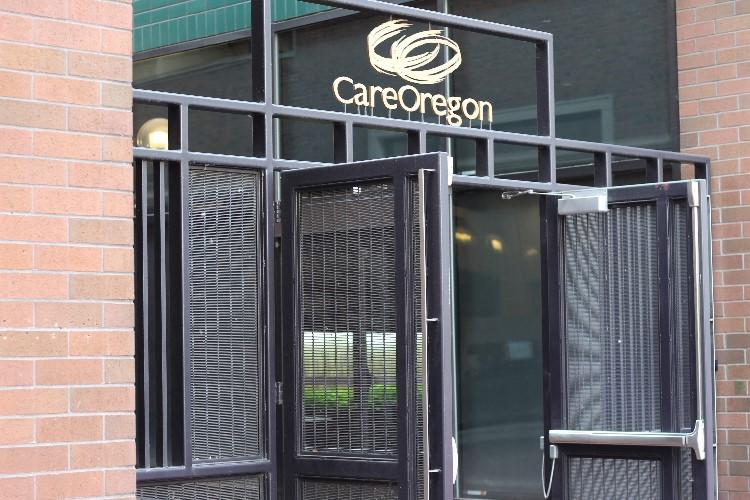
Oregon’s Medicaid insurers have been busy during the pandemic.
They sent language interpreters to food banks. They hooked up transportation providers with their members. And they asked community groups to conduct wellness checks of people.
These are a few ways that coordinated care organizations have helped their members this year, as the twin disasters of COVID-19 and wildfires slammed the state. Before the pandemic, one in four Oregonians relied on the Oregon Health Plan for their health care insurance. But as people lost their jobs with the closure of businesses and plunging economy, the ranks of Medicaid members has swelled, reaching more than 1.2 million.
Officials from coordinated care organizations spoke for the first time on Thursday, along with lawmakers, about the challenges they’ve faced this year at an Oregon Health Forum event. The forum,, a partner of The Lund Report, organized the virtual event, which drew nearly 370 people. Rep. Andrea Salinas, D-Lake Oswego and chair of the House Health Care Committee, moderated the event.
Coordinated care organizations contract with the Oregon Health Authority and medical providers to serve people who receive Medicaid services.
Dr. Richard Williams, a physician with Mountainview Family Practice in Grants Pass and associate medical director and board member of AllCare Health, said the coordinated care organization’s work includes paying for social services that help people during wildfires or other crises. The Grants Pass-based AllCare Health has members in Josephine, Jackson and Curry counties.
As an example, he said AllCare worked with a community organization to help a homeless family pay an overdue electric bill and get into an apartment.
During the fires in Southern Oregon, AllCare passed along location data of people to care coordinators who helped 32 families evacuate through non-emergency medical transportation. The coordinated care model, he said, allows health care organizations to be nimble. The organizations are regionally based, and they receive a set amount -- about $6,000 a year -- per member. People on the Oregon Health Plan pay nothing or very little for care and prescription medications. Rep. Pam Marsh, D-Ashland, said the wildfires that devoured wide swaths of Southern Oregon has made it difficult for people to find housing. For example, manufactured homes that were destroyed will be rebuilt but at a cost to the homeowner. And besides the expense, homelessness takes a toll. When people are homeless, Marsh said, that impacts their health as they live out of vehicles or sleep in crowded living rooms.
“This pain and trauma is going to have to be addressed,” Marsh said.
Kristina Espinoza, language access coordinator for AllCare, said the coordinated care organization has worked to make qualified medical interpreters for Spanish available in medical facilities. In the last few years, more than 140 medical interpreters have gone through AllCare’s program in Southern Oregon, which includes written and oral tests so language interpreters can qualify to work in medical clinics and hospitals.
The work isn’t just unfolding in health care. CareOregon also paid for language interpreters to assist in food banks in Jackson, Josephine and Curry counties as part of a pilot project. Interpreters worked a total of 375 hours, interpreting for Hispanics and other non-English speakers who needed help. She said Jackson and Curry counties have received grants to continue the work into 2021.
Salinas said she has worked for the last couple years on the need to bolster the number of health care interpreters in Oregon.
“This is a real need and we can’t have people going into medical facilities and not have interpreters available,” Salinas said.
Dr. Amit Shah, chief medical officer of CareOregon, said partnerships are key to providing services to members. During the wildfires, CareOregon reached out to members to check on their welfare. The nonprofit also gave community organizations materials to inform their clients about how to get help, Shah said.
CareOregon manages health plan services for three coordinated care organizations: Jackson Care Connect, Health Share of Oregon and Columbia Pacific CCO.
Besides providing physical and mental health care, the Oregon Health Plan also includes dental benefits.
Marko Vujicic, chief economist and vice president of the American Dental Association Health Policy Institute, said Oregon dentists have been doing better during the pandemic than their peers in other states. Overall, patient volumes in U.S. dental offices is about 77% what they were earlier this month. But in Oregon, Medicaid members and others have been more willing to visit their dentist than people in some other states. That’s because Oregon’s COVID-19 case rate has been fairly low.
“Thankfully, people are getting back to needed dental care,” he said.
You can reach Ben Botkin at [email protected] or via Twitter @BenBotkin1.
